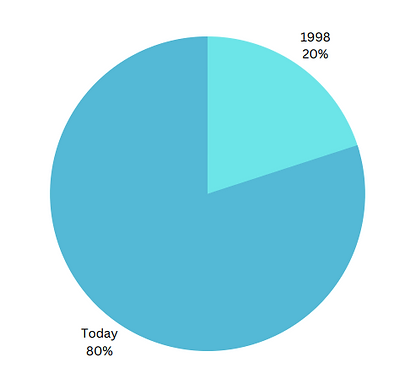“The next five years will mark a period of great change in China’s recruitment industry,” commented a major executive search executive in China . Globalisation, technology, COVID, are some of the major changes that have affected China and executive search companies across the country. A rise in competition for talent as well as the digitalisation of executive search has taken over China and the rest of the world. Yet, another battle China faces is not only the human factor but also the effects of its deep rooted culture and the latter’s effect on this factor of executive search .
People are the base of everything in the right executive search
Executive search companies base their work on people. Executives and businesses yes, but at the end of the day, people. Executive search companies must learn to implement different strategies in China when it comes to domestic, local enterprises and firms that are far more foreign. It has been said that when most companies entered the China market in 1998, 90 percent of their clients were multinational companies. But today more than half of clients are local companies.

As there has been a rise in the demand for firms in China over the years there has also been a rise in the search for executives who can implement themselves into the company strategically but also culturally. Nevertheless, how important is it to maintain this human factor? and how are they doing it?
China landscape
When dealing with domestic companies in China who are in direct competition with multinational companies in various sectors such as technology and life sciences, a head hunting company must respect the culture difference between both businesses.
Multinational firms located in China can prioritise a foreign CEO because they believe that is the right fit for their company just as a domestic company could make it clear that they want to keep things local, a challenge which executive search companies must adapt to and understand, a challenge that is based on maintaining a “human” respectful relationship amongst the executive search company, the client and the candidate. It has become more attractive to work at a company in China, with an average salary rise of between 6 to 10 per cent for most professional job types is expected to continue, with figures most likely near the lower end of this range. But is there a shortage of talent?
It is not always about the money for future executives but actually involves a human, cultural factor. In fact, executive search in China is about finding an executive who shows real interest in the culture and history of China and who seek to expand the company’s success whilst maintaining this. A lot of executives leave their positions at firms in China after a year due to these cultural differences.
Technology plays a newly found part in executive search . Another executive stated that “research tells us that citizens of China spend more than twice as much time online as their US counterparts. Yet, technology puts a barrier between the human interactions of executive search , executive search companies online cannot recognise these cultural needs for certain companies and build relationships between candidates and clients. Companies in China are interested in improving and adapting to Western culture which is immensely reliant on technology.
The human factor and executive search
Executive search companies need to remember to maintain a human factor when dealing with foreign executives who must be aware of the cultural importance. Moreover, domestic companies who want to keep executives local need to find executive search companies who recognise this and can find the perfect fit for this. All the while, the human factor is based on, follow ups, meetings where you can see your candidate or client’s face, having consultants who speak many languages and can aid on a less robotic and more relatable level. Zavala Civitas takes pride into these details that makes a executive search company in China stand out from the rest.






